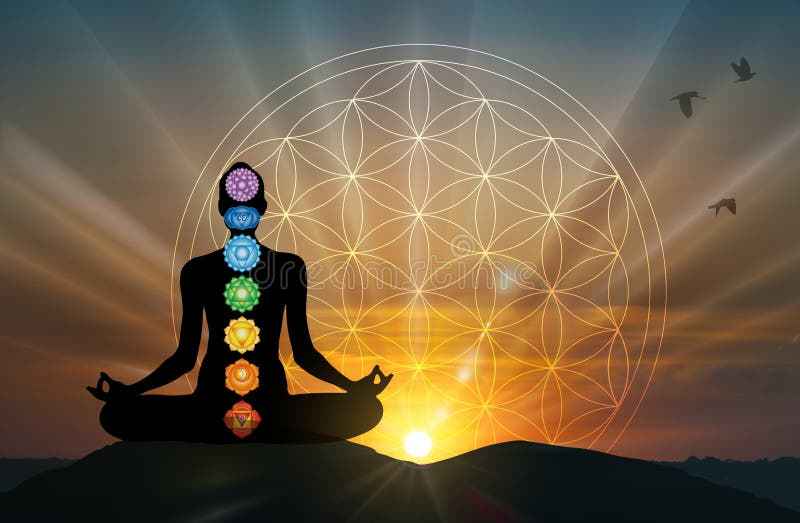Have you ever questioned the deeper meaning of life? Wondered about the existence of something greater than yourself?
Explored the realms of love, compassion, and wisdom beyond the scope of everyday experiences? If so, you may have embarked on a spiritual journey.
Spirituality is more than just a set of beliefs or religious practices. It is a profound recognition that there is something sacred and awe-inspiring in the world, and that we are connected to it.
It is an exploration of universal themes and values that transcend the boundaries of culture and religion.
To be spiritual means to strive for personal growth and self-improvement, to heal and affirm our egos, and to open our hearts to others and to divine forces.

It involves contemplative practices like prayer and meditation, which help us connect with the deeper aspects of our being.
Spirituality is a deeply personal journey, influenced by religious teachings but not bound by them.
It is a quest for truth, understanding, and a profound sense of purpose and meaning in life. It opens our minds and hearts to profound experiences and can lead to a greater sense of peace, fulfillment, and connection to the world around us.
Key Takeaways:
- Being spiritual means recognizing the presence of something greater than ourselves.
- Spirituality is not limited to religious practices and can transcend cultural boundaries.
- Contemplative practices like prayer and meditation are key aspects of spirituality.
- The spiritual journey is a personal quest for meaning, understanding, and personal growth.
- Spirituality can bring a sense of peace, fulfillment, and connection to oneself and the world.

The Spiritual Journey and Personal Growth
The spiritual journey is a profound exploration of the self, leading to personal growth and transformation. It is a path that encompasses healing, self-discovery, and the awakening of higher consciousness.
Through spiritual practices and beliefs, individuals embark on a quest to connect with something greater than themselves and find purpose and meaning in life.
On this journey, one of the key aspects is healing and affirming the ego. This involves transcending the limited sense of self and embracing a wider perspective that encompasses interconnectedness and unity.
Through practices such as meditation, prayer, and self-reflection, individuals can let go of ego-driven desires and attachments, leading to a deeper sense of inner peace and fulfillment.
“The spiritual journey is not about reaching a destination; it is about experiencing the present moment fully and embracing the process of growth and self-discovery.” – Eckhart Tolle
Spiritual development can occur through various means, such as deepening one’s understanding and practice of spiritual beliefs, or through transformative experiences that challenge and expand our worldview.
These experiences, whether through encounters with illness, loss, or moments of profound insight, can catalyze a spiritual awakening and propel individuals to seek a higher truth.

Questioning the beliefs and practices of religion is also a common aspect of the spiritual journey. While spirituality can be influenced by religious teachings, it is not confined by them. It encourages individuals to explore their own personal experiences of truth and transcendence, to find their unique path towards spiritual growth.
The spiritual journey is a continuous process of self-improvement, leading to the development of qualities such as love, compassion, and wisdom.
It involves living in alignment with higher values, treating others with kindness and empathy, and cultivating inner peace amidst life’s challenges.
Through introspection and a willingness to look inward, individuals can tap into their own inner guidance and moral compass.
This inner journey allows for deep insights, self-awareness, and personal transformation, leading to a more meaningful and purposeful life.
Spiritual Practices for Personal Growth
Spiritual practices play a vital role in the journey of personal growth and spiritual development. Here are some practices that can facilitate this transformative journey:
- Prayer: Connecting with the divine and expressing gratitude and intentions.
- Meditation: Cultivating mindfulness, inner stillness, and self-awareness.
- Journaling: Reflecting on experiences, insights, and aspirations.
- Yoga: Integrating mind, body, and spirit through physical movement and breath.
- Service to Others: Volunteering or acts of kindness that foster compassion and selflessness.
By incorporating these practices into our daily lives, we can nurture our spiritual growth, deepen our connection with the sacred, and realize our full potential as individuals on this extraordinary journey.
| Spiritual Journey Milestones | Key Elements |
|---|---|
| Awakening | Self-discovery and realization of a deeper reality |
| Healing | Releasing past wounds and embracing inner wholeness |
| Expansion | Opening the heart and transcending limitations |
| Integration | Living in alignment with higher values and purpose |
| Transformation | Growth, wisdom, and flourishing as a spiritual being |

The Importance of Belonging and Finding Meaning
The sacred work of being human involves discovering who we are, why we are here, and how we are to live in a particular era. It encompasses the search for personal and collective meaning and belonging.
Belonging is a fundamental human longing, and spirituality provides a framework for experiencing belonging with oneself, others, and the greater web of relationships. It encompasses faith, hope, love, and collective wisdom.
The development of a coherent sacred narrative, which integrates personal experiences with current knowledge and beliefs, generates an authentic experience of meaning and belonging.
This narrative provides a rational means for giving purpose to life and living with integrity and authenticity.
Standing in our own ground, openheartedly, allows us to make sense of our existence, live in harmony with our values, and contribute to the ongoing creative dance of being and becoming.
FAQ
What does it mean to be spiritual?
Being spiritual involves recognizing that there is something greater than oneself and a sense of connection to a cosmic or divine nature. It entails exploring universal themes such as love, compassion, altruism, and wisdom and aspiring to manifest these qualities in one’s life.
What is the spiritual journey?
The spiritual journey is a personal path of healing and self-discovery. It involves healing and affirming the ego, experiencing positive states, opening the heart, and seeking higher levels of development. It requires practice or discipline, such as prayer and meditation, to make progress.
How does spirituality contribute to personal growth?
Spirituality fosters personal growth by providing a framework for self-improvement. It encourages individuals to become more loving and compassionate, live in alignment with higher values, and seek deeper purpose and meaning in life. The development of spirituality involves self-reflection, introspection, and a willingness to look inward for guidance and morality.
Are spiritual practices necessary for spiritual growth?
Yes, spiritual practices such as prayer and meditation can greatly facilitate spiritual growth. These practices help individuals connect with the divine, cultivate inner peace and stillness, and gain clarity and insight. Engaging in regular spiritual practices allows individuals to deepen their connection to themselves and the universe.
Can spirituality exist outside of religious beliefs?
Absolutely. Although spirituality may be influenced by religious practices, it can transcend religious doctrine. Spirituality is a personal journey that goes beyond specific religious affiliations or beliefs. It involves the search for truth, understanding, and a deeper sense of purpose and meaning in life.
How does spirituality contribute to finding meaning and belonging?
Spirituality provides a framework for experiencing meaning and belonging. It encompasses faith, hope, love, and collective wisdom. By exploring and aligning with spiritual beliefs and practices, individuals can discover personal and collective meaning, connect with others and the greater web of relationships, and live in harmony with their values and purpose.




